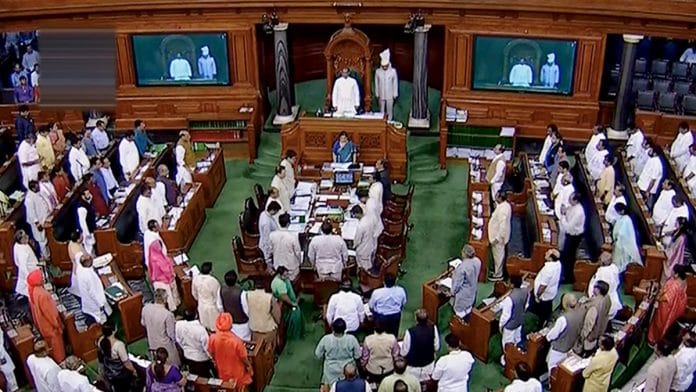New Delhi: Finance Minister Nirmala Sitharaman Friday said the government has de-registered four lakh shell companies as the Lok Sabha approved a bill seeking to tighten CSR norms and ensuring stricter action for non- compliance of the company law regulations.
Piloting the Companies Amendment Bill 2019, the minister said companies not spending the mandatory two per cent profit on Corporate Social Responsibility (CSR) activites for a total period of four years will be required to deposit the amount in a special account.
The amendments in the Companies Act, she added, were aimed at improving the ease of doing business and also reducing compliance burden on the companies, especially the smaller ones.
The Bill was later passed by the Lower House unanimously after Congress leader Adhir Ranjan Chowdhury withdrew statutory resolution opposing it.
Responding to the concerns of members on shell companies, Sitharaman said the word “shell companies” has not been defined in the rule book, but it is loosely referred to inactive companies or those that do not maintain a registered office.
“Four lakh companies have been identified and de-registered,” she said, adding non-maintenance of registered office will be a ground for de-registration of companies.
A key change in the Bill pertains to CSR spending, wherein companies would have to mandatorily keep unspent money into a special account.
Under the Act, companies earning profit of over Rs 5 crore, turnover of Rs 100 crore or networth of more than Rs 500 crore are required to shell out at least two per cent of their three-year annual average net profit towards CSR activities.
India, Sitharaman said, has become the first country to make CSR spending mandatory through a law.
The companies will have one year to firm up the CSR proposal and another three years to spend funds.
In case money remains unspent for one plus three years, the money will have to be moved to an escrow account, she said, adding it could even be the Prime Minister’s Relief Fund.
The bill empowers the Registrar of Companies (ROC) to initiate action for removal of the name of the company from Register of companies if it is not carrying on any business or operation in accordance with the company law.
Among other things, the bill also provides for re-categorisation of 16 minor offences as purely civil defaults, transferring of functions with regard to dealing with applications for change of financial year to the central government, and shifting of powers for conversion from public to private companies from NCLT to the central government, as well as more clarity with respect to certain powers of the National Financial Reporting Authority (NFRA).







The next time someone from his family needs oxygen it might be a good idea to drop that person off at a cowshed.